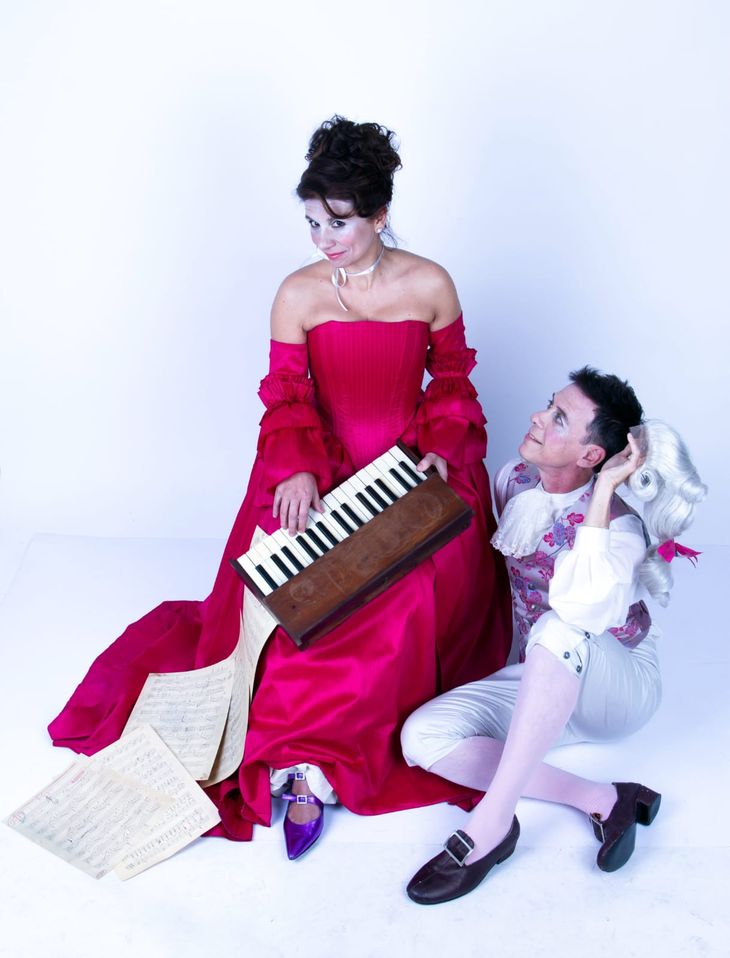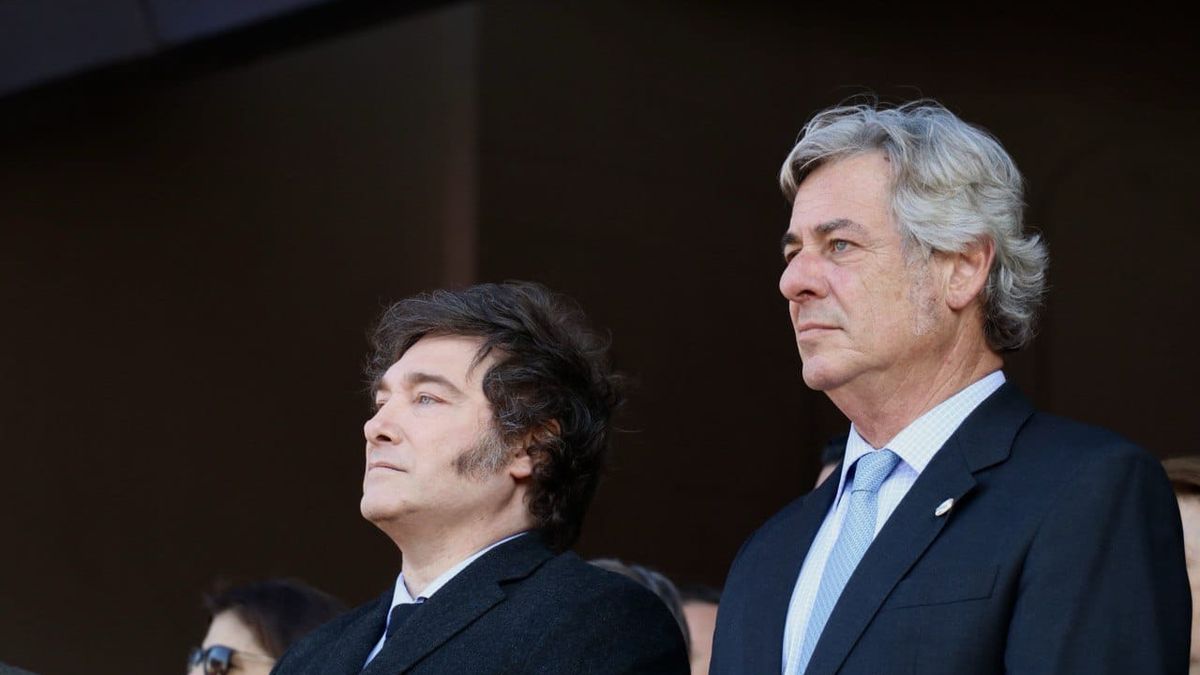“Contrary to the ideal of the tormented artist, Mozart was a man who greatly enjoyed being with people, loved his wife and greatly enjoyed his work. “Probably a happy genius.” says José Militano, author and director of “My dear Mr. Mozart,” which premieres next Monday at El picadero.
With the performance of Marcos Montes with the pianist Fernanda Morello, the work imagines the artistic and emotional relationship between the composer and Barbara Ployer, one of his favorite students who inspired the G major Concerto K. 453. However, more than a biography, the show is a series of occurrences inspired by those creatures that underlie the classic question of whether love was for the person or for the artist. The Piano Concerto No. 17 will be played in its entirety as in a traditional hall, and also features a Wind Quartet and the Delta Quartet. We talk with Military.
Journalist: Why Mozart? What did he mean and how does he differ from other classical composers?
José Militano: Marcos Montes, Fernanda Morello and I had worked together on an experimental show that combined concert and theater, based on the music of Ravel and the poems of Bertrand. For this new project we wanted to continue exploring that hybrid format but with a composer who is more appealing to those who are not interested in classical music. Perhaps the most distinctive thing about Mozart is his unusual balance between qualities that do not usually go together: the irresistible instinct for melody mediated by extreme formal clarity; music controlled but spontaneous, symmetrical but inspired. He apparently has a polished and gallant sound surface that hides the power to move in ways we do not expect.
Q: How do you imagine this love story between Mozart and his student?
JM: Fernanda came with this idea and told me the story of Barbara Ployer, a student for whom Mozart wrote two of his piano concertos. There is very little information about her, and that gave us the freedom to imagine a bond of creative friendship tailored to us. We are not portraying a story of consummate romantic love, but rather an emotional and intellectual tension where love for art can be confused with love for the artist.
MOZART 5.jpeg
Q: For those not in the know, is there context about Mozart’s history and the time in which he lived? What stands out about his life?
JM: Mozart composed his most important works in Vienna, the capital of European music at the time. Composers still worked for the courts, but the Enlightenment and faith in the progress of Humanity had already arrived, so all that optimism influenced the music of their time. Rationalist currents made composers strive to give clean and fluid forms to music. Mozart was educated in that tradition and elevated it in the direction of his own wild imagination. His way of life was just as voracious and lively.
Speaking of teachers, we saw Bradley Cooper’s The Teacher very present at the Oscars. Every now and then stories are told about great musical geniuses….what do you attribute it to? Which one can you highlight?
JM: Most of us also have a hard time separating love of art from love of the artist, and stories about their lives are often a parallel way to expand the experience. And, furthermore, there is the curiosity for the novel details. Amadeus, for example, remains one of the most memorable biopics ever made, and also one of the most controversial. I think it is a mistake to attribute historical inaccuracies when they are actually licenses proposed from fantasy and enjoyment, a vindication of the popular imagination. The important thing is that it respects the place of music and takes care of giving it narrative value. “My Dear Mr. Mozart” proposes an even less rigorous historical approach; More than a biography, it is a series of occurrences inspired by two people who existed and the beautiful work that resulted from that meeting (the Piano Concerto No. 17, which will be played in its entirety as in a traditional hall).
Q: How do you see this moment in theater, music and culture?
JM: These are difficult times for everyone. I always try to think that culture is not something weak that goes out so easily. What moves us has its own force, and it is up to us to bring it to its best version within each context. I would like, however, for the colleagues who leave so much behind in this way to have the retribution and respect they deserve. The quality of entertainment that people enjoy in more commercial media often originates in many of the public places of training and experimentation that are sometimes demonized. Misinformation diminishes us all, regardless of our political preferences.
Source: Ambito
I am an author and journalist who has worked in the entertainment industry for over a decade. I currently work as a news editor at a major news website, and my focus is on covering the latest trends in entertainment. I also write occasional pieces for other outlets, and have authored two books about the entertainment industry.




